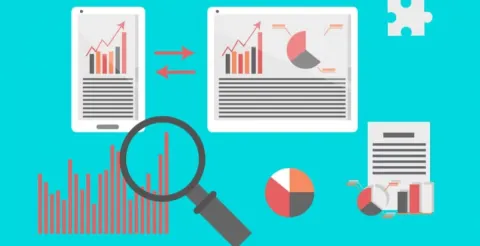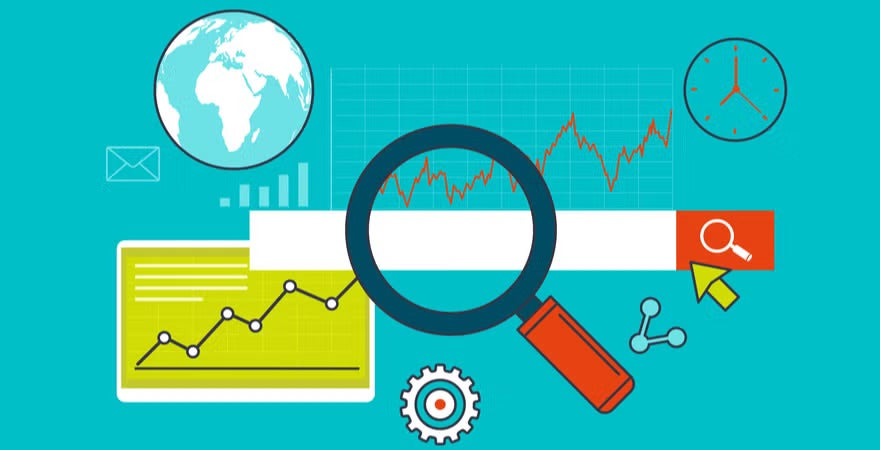In 2015 just 17 per cent of enterprises were utilising big data, according to Forbes. But three years later, in 2018, that number had exploded to 59 per cent. Today, it’s clear that businesses that continue to rely on gut instinct rather than hard data are under threat of disruption, customer dissatisfaction and slower reactions to market movements.
This is because data analytics can assist a business in so many ways. In fact, one of the problems for some businesses that have looked to bring the power of analytics on board is the fact that its high number of applications are simply overwhelming.
From product development to customer experience and from marketing campaigns to talent audits, data can unlock doors to success that were previously locked. However, for a successful introduction to analytics, sometimes it’s better for a business to narrow their focus, to think about solving one specific problem, rather than achieving a data-driven transformation all at once.
How does analytics help businesses? Here are some of the challenges that businesses can focus on through the analytics prism.
Improve customer experience
We all know the feeling of being a customer and contacting a brand with which we’ve corresponded in the past, only to be treated like a complete stranger. Or perhaps the staff in the shop demonstrate friendly familiarity, but the customer service agents on the phones are distant and gruff, leading to a feeling of inconsistency, and therefore a lack of trust.
Data, particularly as shaped by specialists such as Salesforce, can be used to bring consistency to customer experience, whether in store, on the phone, on social media or via any other touchpoint.
It’s not all about consistency and familiarity, either. Good customer data can be used to predict when the customer might have a problem with a product or need new parts. It can even help the business know what other related products the customer is likely to be interested in, and when.
When data is utilised well, it can make the customer feel as if they are truly appreciated and valued by the business.
Boost product development
It’s impossible to know what a customer will want before the customer knows, right? Wrong! Data analytics can be used to recognise trends and predict tastes.
How is this possible? By looking backwards and conducting ‘descriptive analytics’, data scientists are able to recognise past patterns, trends and drivers of a particular behaviour. That information can then be utilised to model future developments and events.
Data from related industries can also help to predict certain market movements. For example, industries that revolve around colour (fashion, flowers, home decorating, etc.) are able to analyse past patterns to figure out which colours will be hot, and which will not, next season.
This predictive modelling has enormous potential in the field of product development.
Make marketing more effective
Some argue that the analytics industry first cut its teeth in the marketing arena. It certainly has been an expectation for many years that online campaigns will involve some sort of data analytics, in order to continue to improve, even if it’s just simple A/B testing.
The fact that analytics has been used in marketing for so many years means tools have now been developed to solve some very powerful challenges. It might be about optimising campaigns (as well as websites and social media) for a specific purpose – whether that be conversion, click-throughs, comments, shares – or it may involve more accurate segmentation of customer groups for marketing purposes.
There is a seemingly endless list of uses for analytics in marketing – one academic study used data to figure out how food labels of specific colours affected the emotions of shoppers! Sometimes the most difficult process is figuring out what not to analyse.
Tell customer stories
Analytics is now being used across social media and other marketing platforms to trace and tell the customer story.
It might be a story of how and why one customer, once a strong ambassador for your brand, turned against the business and began to publicly recommend that customers stay away. Or it could be a narrative around how the business attracted a large group of customers from an entirely new and unexpected market or geographical area.
Those stories can then be used to develop new strategies in order to replicate past success or avoid further failure.
Enhance order fulfilment
Whether they are caused by the time of day, time of year, weather patterns, sporting events, etc., every business has slow and busy periods. Those that use data analytics to fine-tune their knowledge around exactly what the customers will be wanting, and when, are also able to plan for that demand.
Analytics can be used to efficiently manage staffing and stock levels to not only ensure demand can comfortably be met, but also to minimise wastage and therefore expense.
In the all-important online retail sphere, where fast order fulfilment is increasingly important, this familiarity with ebbs and flows of demand can be the difference between a lost customer and return business.
Lift staff satisfaction levels
No staff member goes to work hoping they will be doing menial and repetitive tasks all day long. Instead, they dream of making a difference and of recognising the importance of their role in helping the business achieve its strategy.
Analytics can help organisations to ensure they are getting the most out of their staff and, as a result, the staff will value the work they do, and will feel valued in return.
Consider, for example, an HR professional who spends much of each day chasing, entering and filing annual leave forms, sick leave documents and notes from performance review meetings. Analytics, whether they be from data collected in staff surveys or from more elegant performance measurement tools, will likely identify that this person is not satisfied with the work they are doing and is also being under-utilised according to their training, experience and talent.
Use this information to encourage the automation of the mundane and repetitive aspects of their role and you’ll free them up to begin working on the strategic requirements of the business. You’ll have a happier, more satisfied and more productive member of staff, and it’s all thanks to data analytics.
Learn more about UNSW’s Master of Analytics - Get in touch with our Enrolment team on 1300 974 990.






